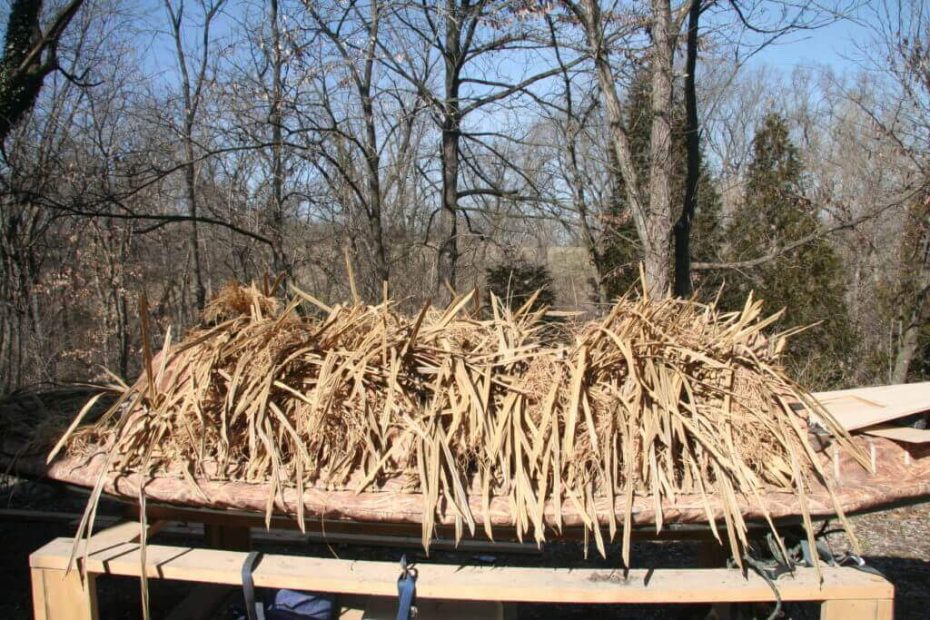Estimated reading time: 16 minutes
In the world of waterfowl, “hide” is key. Ducks can see and hear, but getting a good hide is top of the list for a good day of hunting. I concede I have been on great duck hunts where the “X” was all important and whether you hid or not made no difference. The ducks wanted in and nothing was going to stop them, not even me. But more often we are not on the “X” but rather close by, within sight, within sound and our effort to hide means everything. Let me emphasize, I mean it is everything!
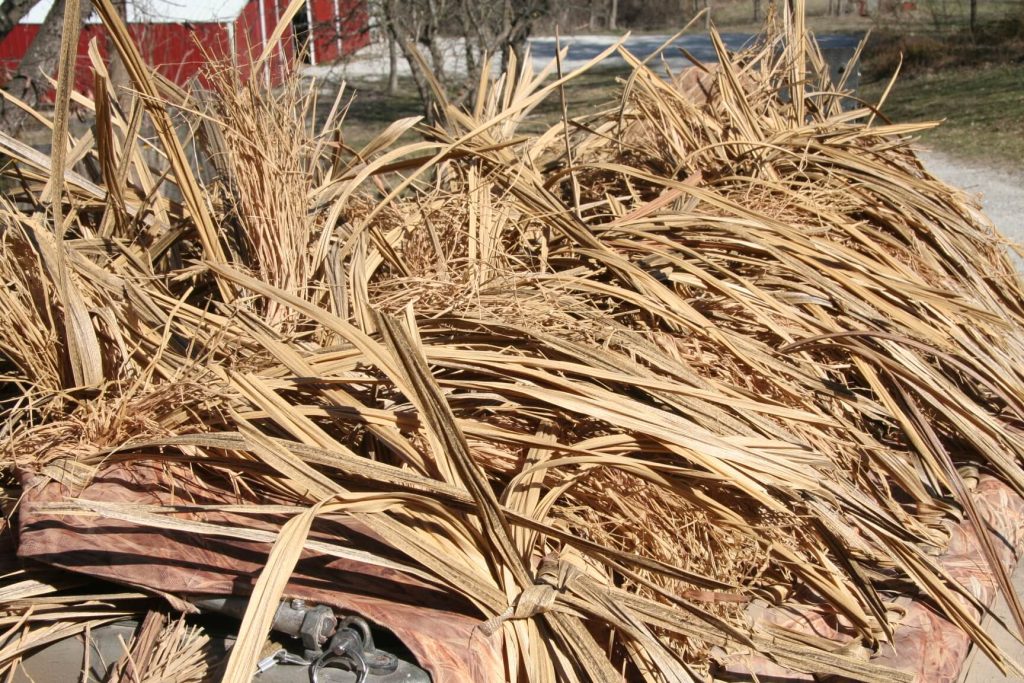
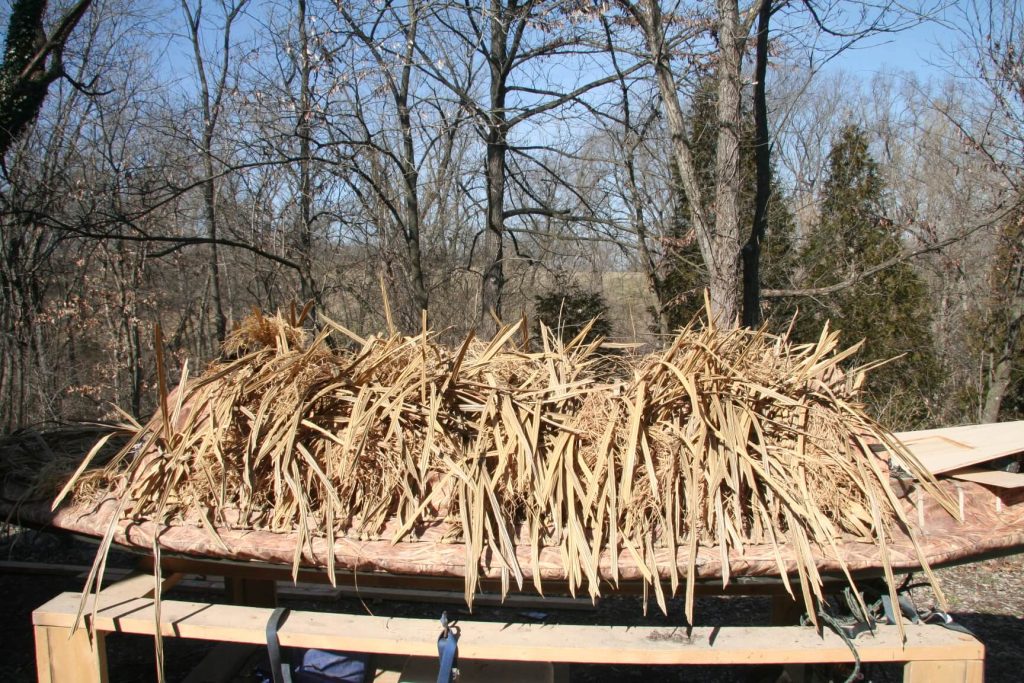
Experience Brings Preference
Where I hunt and where many hunt any type of waterfowl, corn is king. I have had some great timber hunts, but these are marshes I speak of, fields or flooded corn. In that thought our hide has to replicate as closely as possible the environment we are hunting. I tend to favor my 14-foot Refuge Runner by Four Rivers layout boat to help me manage my hide. The boat has to be one the best boats ever made regardless of the boat type. It is capable of hauling a huge load, sitting low in the water, stable, and comfortable. But alas problems do plague me in using this boat – namely the camouflage needed to make it concealed.
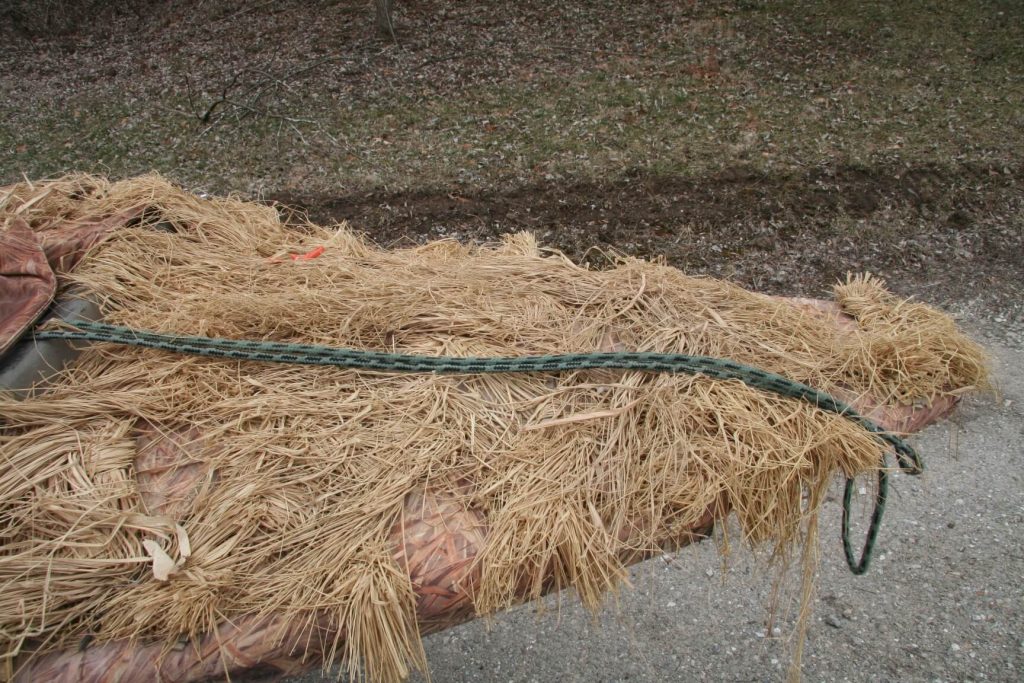
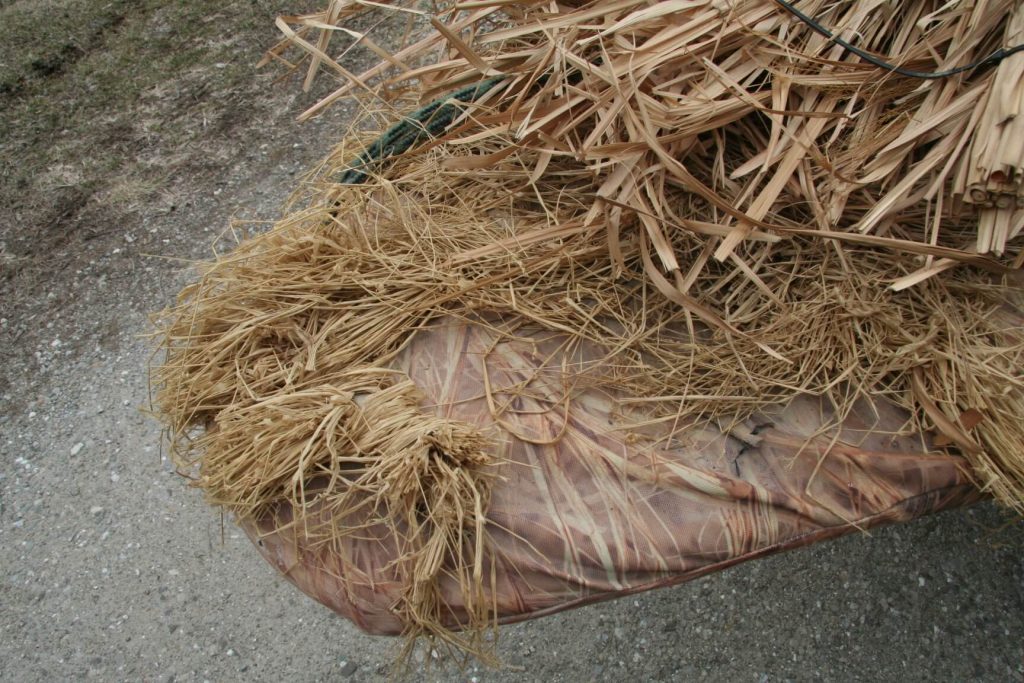
So much effort goes into getting it just right, but over time the hours on the road, water, wear and tear all take their toll. It seems like for so many of us, once we start to get set up we have to add camouflaging to the boat again to blend it in or to cover what blew off on the way to hunt.

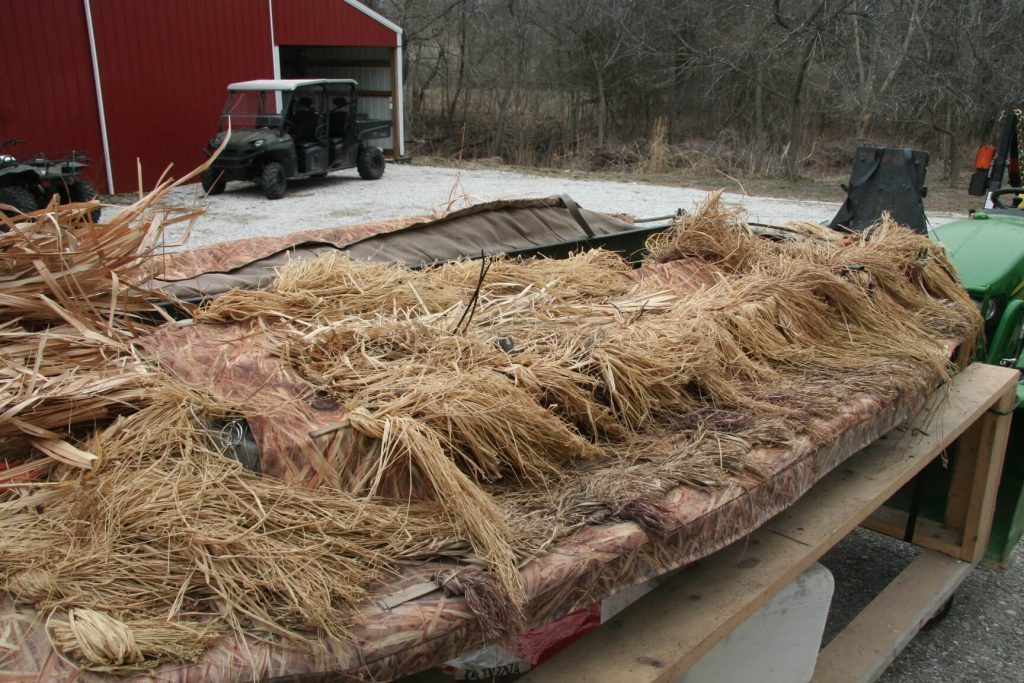
Blind Grass
Blind Grass to the rescue. Their company began in 2018 with many, many years of waterfowl experience. They had one over-arching goal and that was to find a better way to camouflage blinds, boats, and field hunting pits for the long haul. Season after season they were faced with damage due to people, animals, and weather leaving behind the need to constantly re-cover and replace natural materials for concealment. Jay Thomas and his crew have developed synthetic grass that is waterproof, crushproof, mildew-proof, rot, and freeze-proof. The colors they offer are designed to blend into any waterfowl environment including Rice/Corn/Johnson Grass, Wintergreen, and Fall Blend.
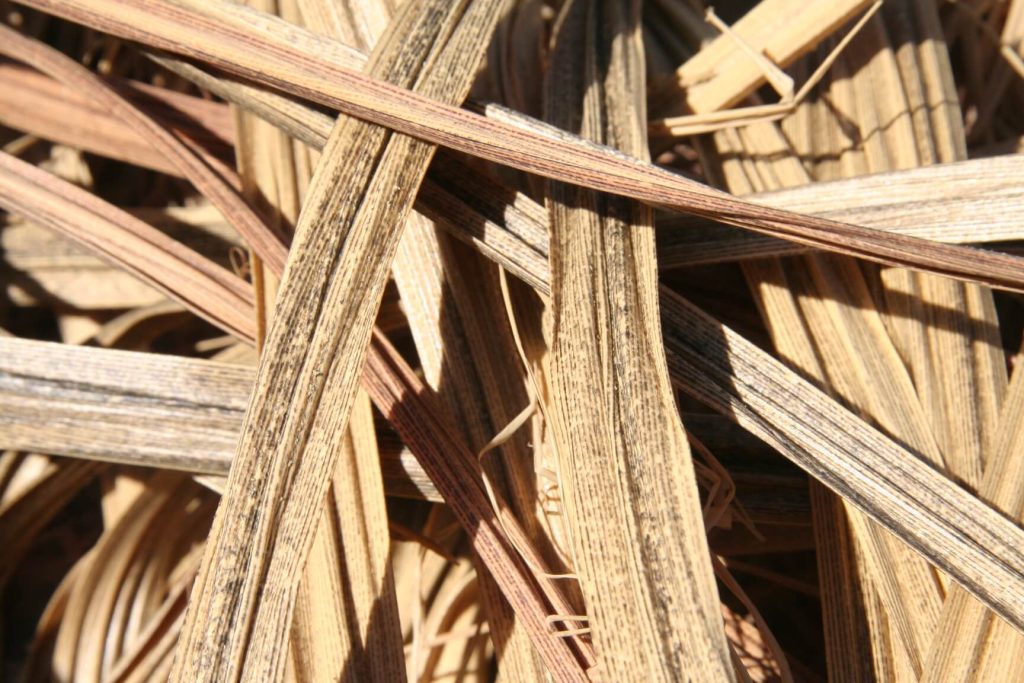
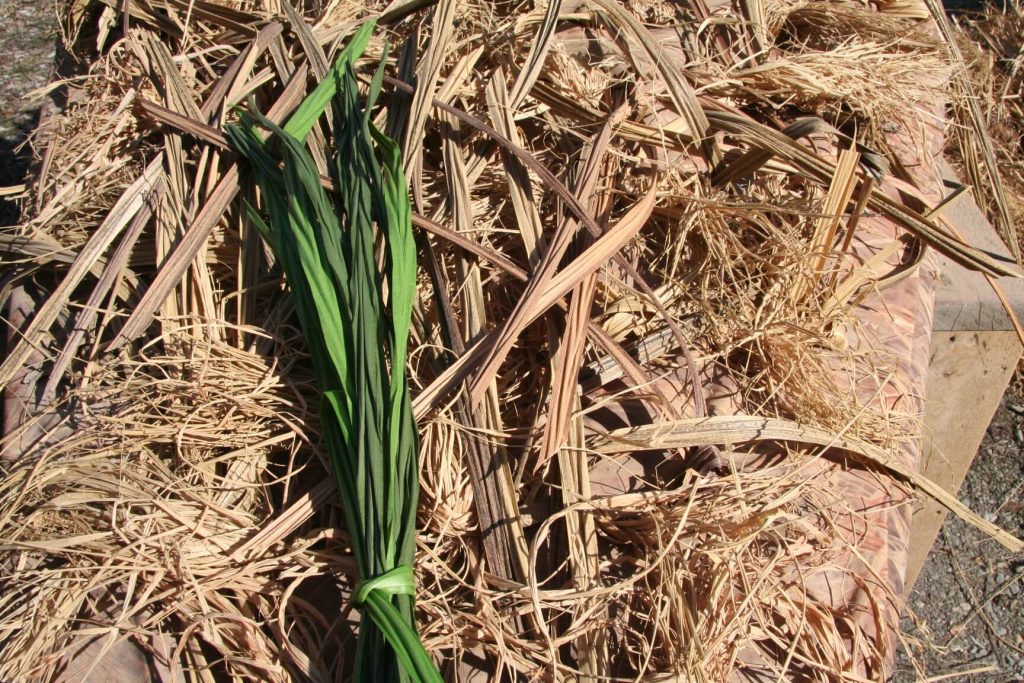
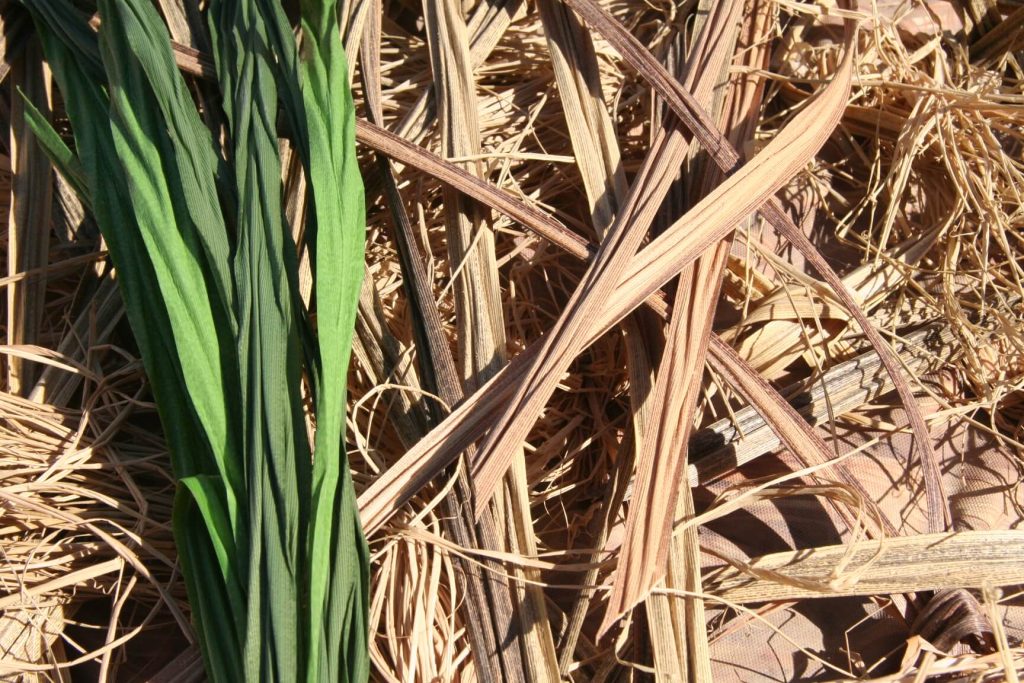
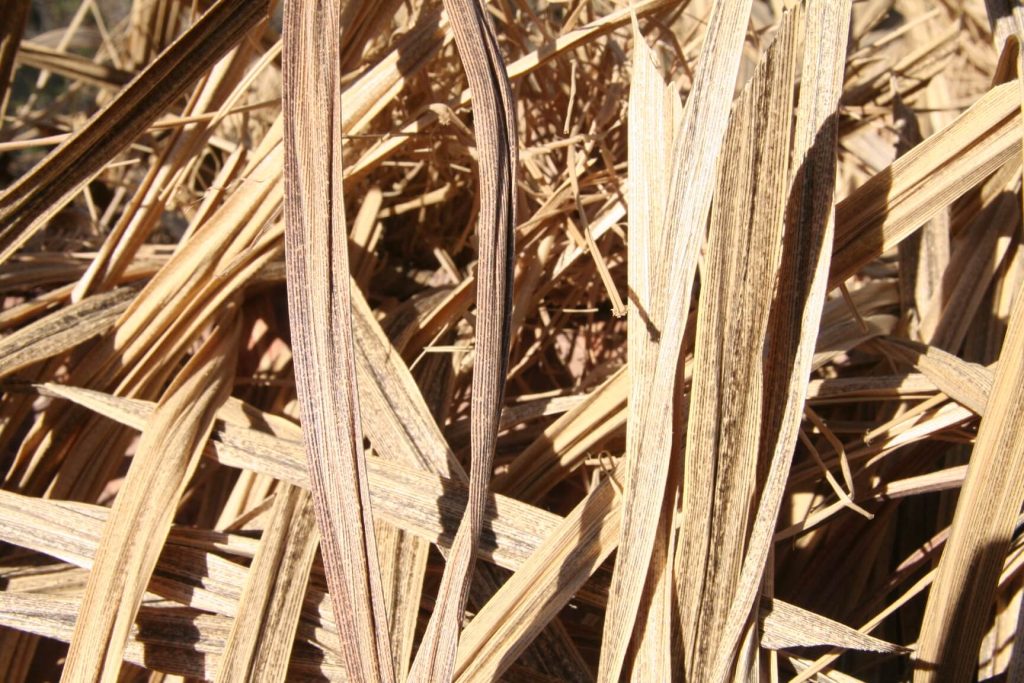
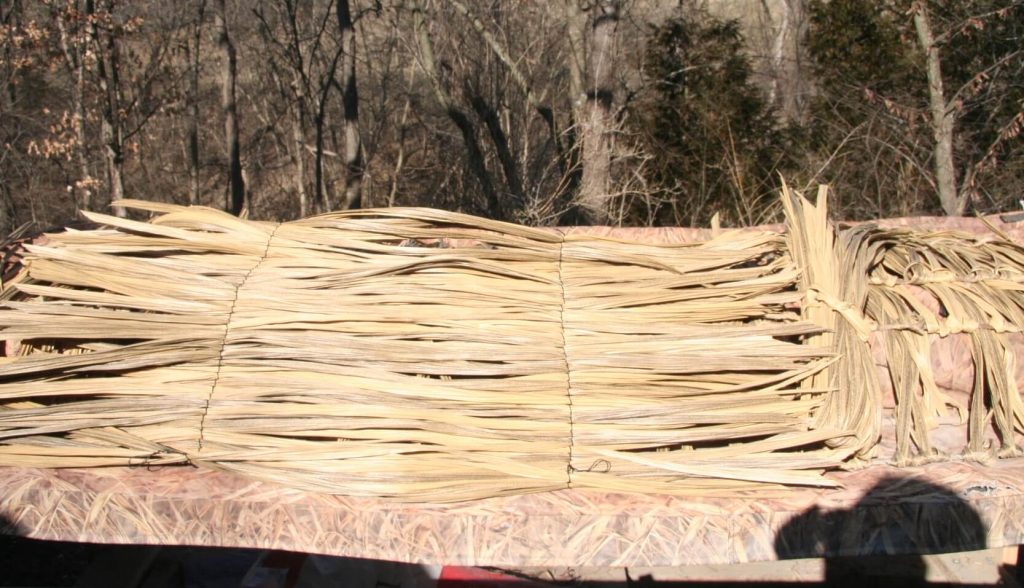
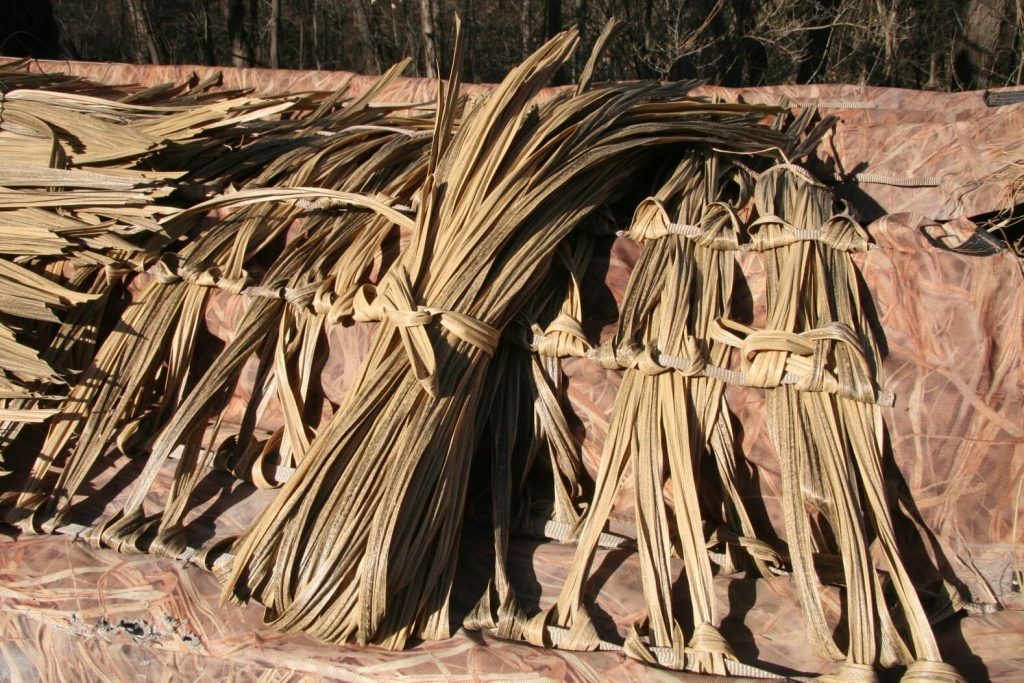
I received enough to do my layout boat but first I needed to strip off all the old raffia grass that I had added as needed to replace what had worn or blown off. This was a yearly, but often weekly need. An eight-pound bundle doubled will make about 16 bundles ten inches wide and twenty-four inches tall. Some of the layers I removed were colors I no longer wanted. Raffia grass is tenacious stuff that can be as strong as wire.
Sometimes you cannot break it and when it gets into your prop all systems stop. It is also unfortunately water absorbent so once wet it gets heavy, takes a while to dry, will freeze the boats into a block of ice, and rots if it does not dry. It does though have some benefits to camouflaging especially when combined with the Blind Grass. Of note here too is that raffia grass has different looks. Some of it is leafy while other is stringy. The stringy material holds less water.
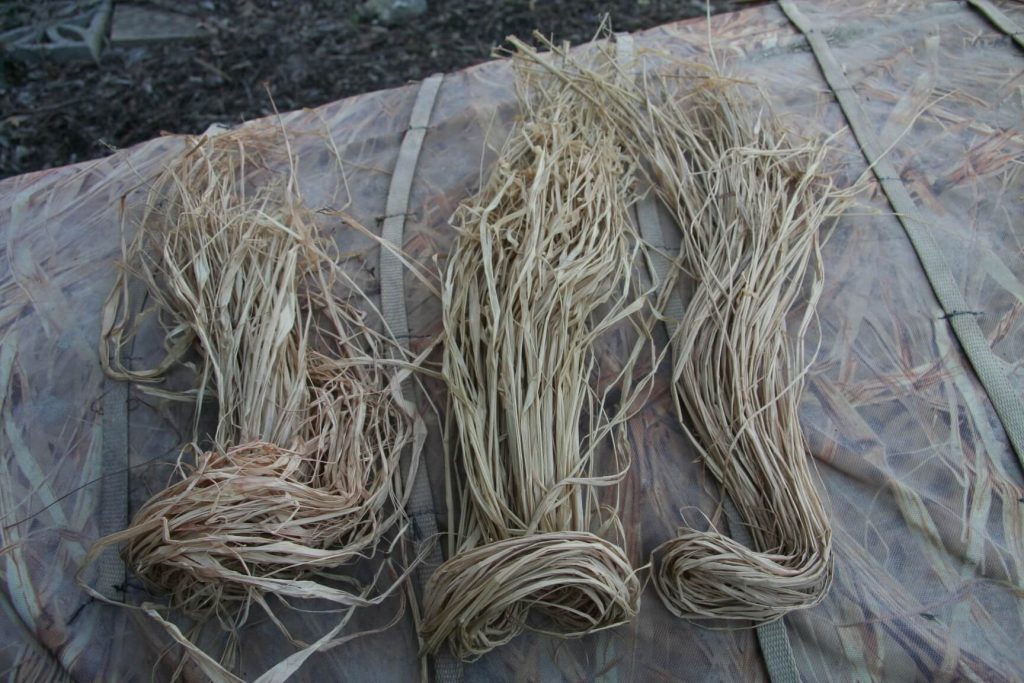
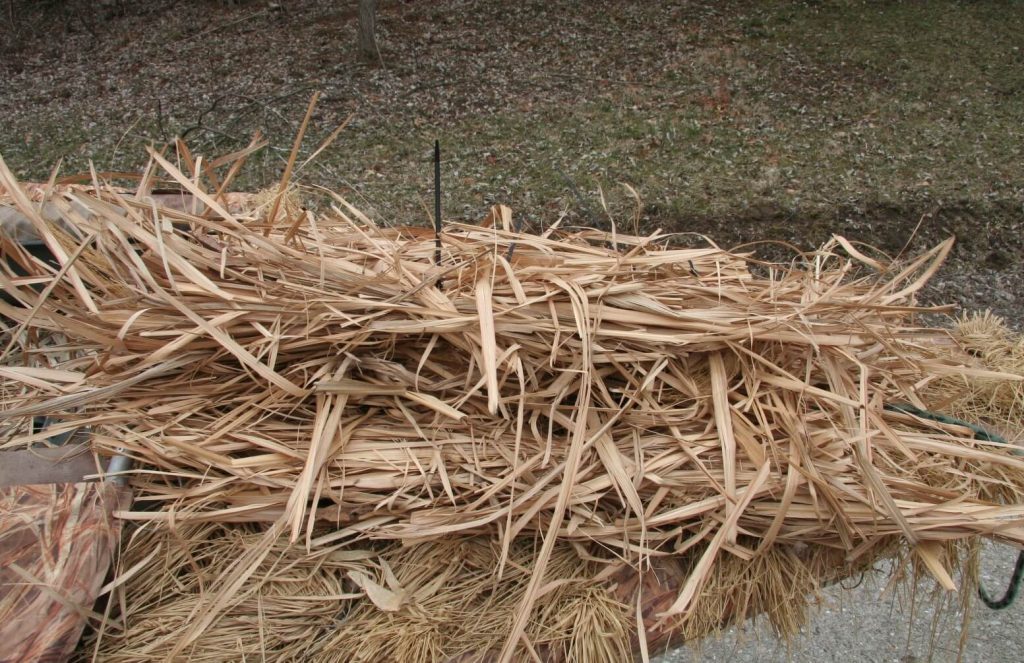
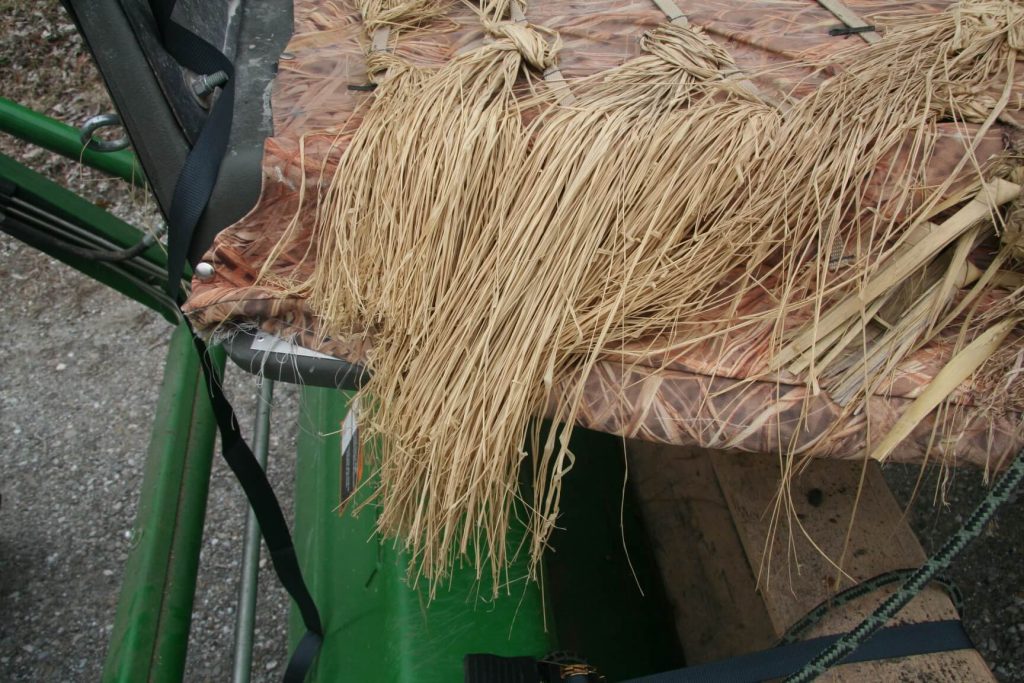
I wanted Rice/Corn/Johnson grass as those tans blend in so well with my typical hunting environment. The grass is so realistic it contains the background color, but also includes the typical black mold you see on corn leaves along with the keeled shape of the leaves.
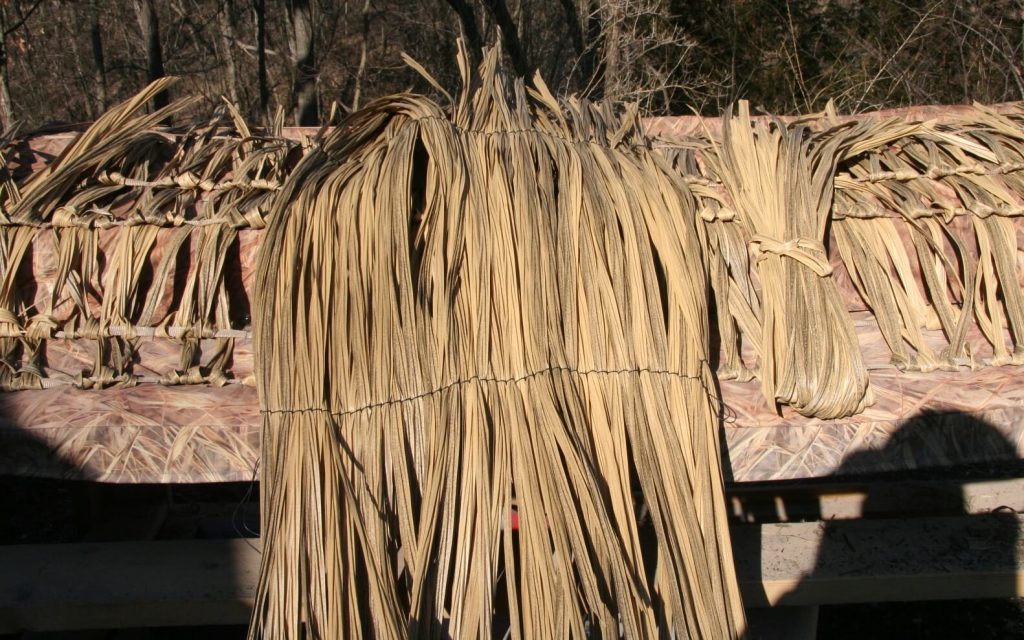
My Four Rivers boat is also covered with KW-1 patterned Cordura and this includes nylon straps sown along the material for attaching your material. Most blinds also have these straps to help hold on grass or other types of concealment. If yours does not you can add them or cut slots into the material to attach the grass. Some panels have elastic bands that will hold the material.
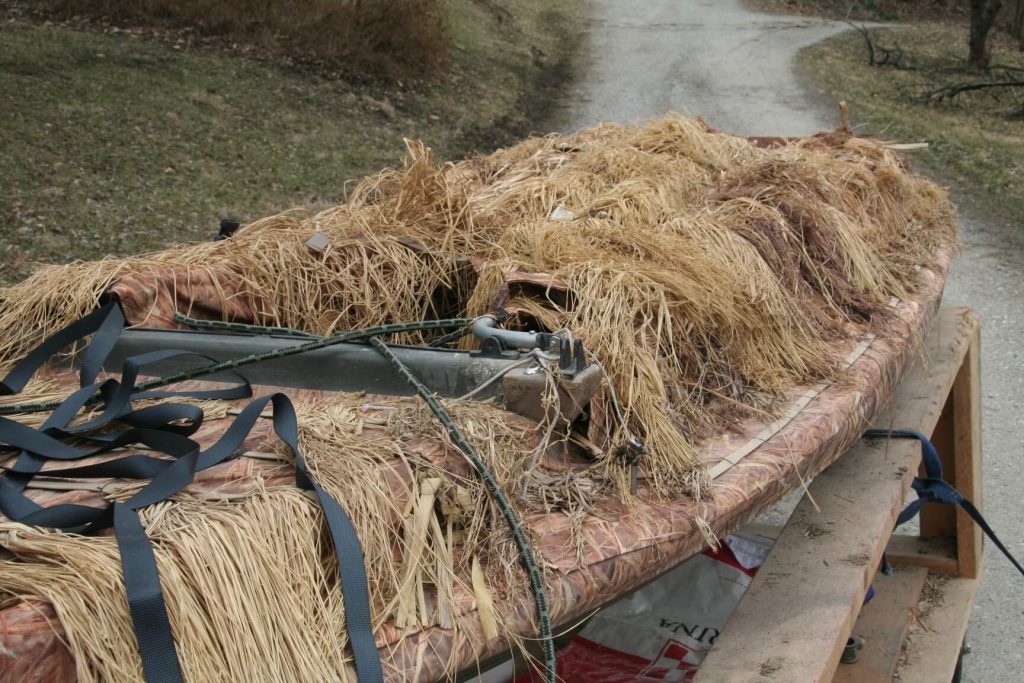
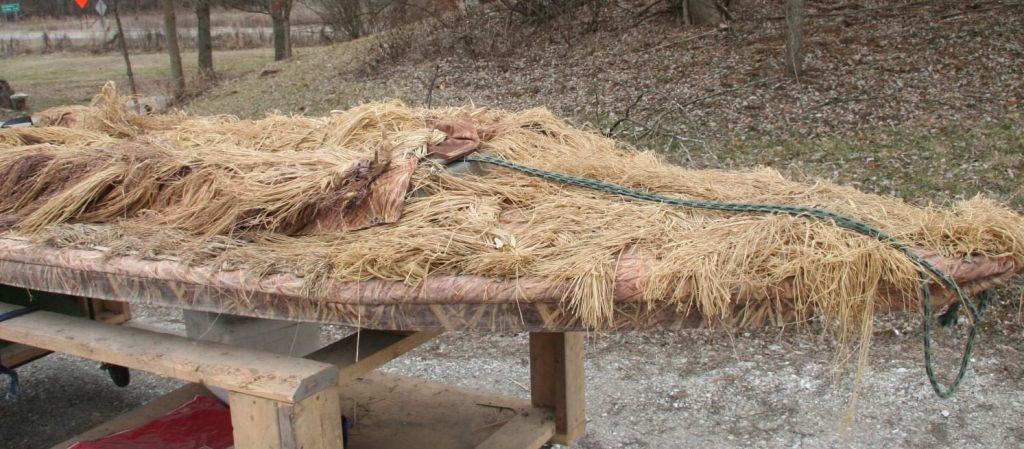
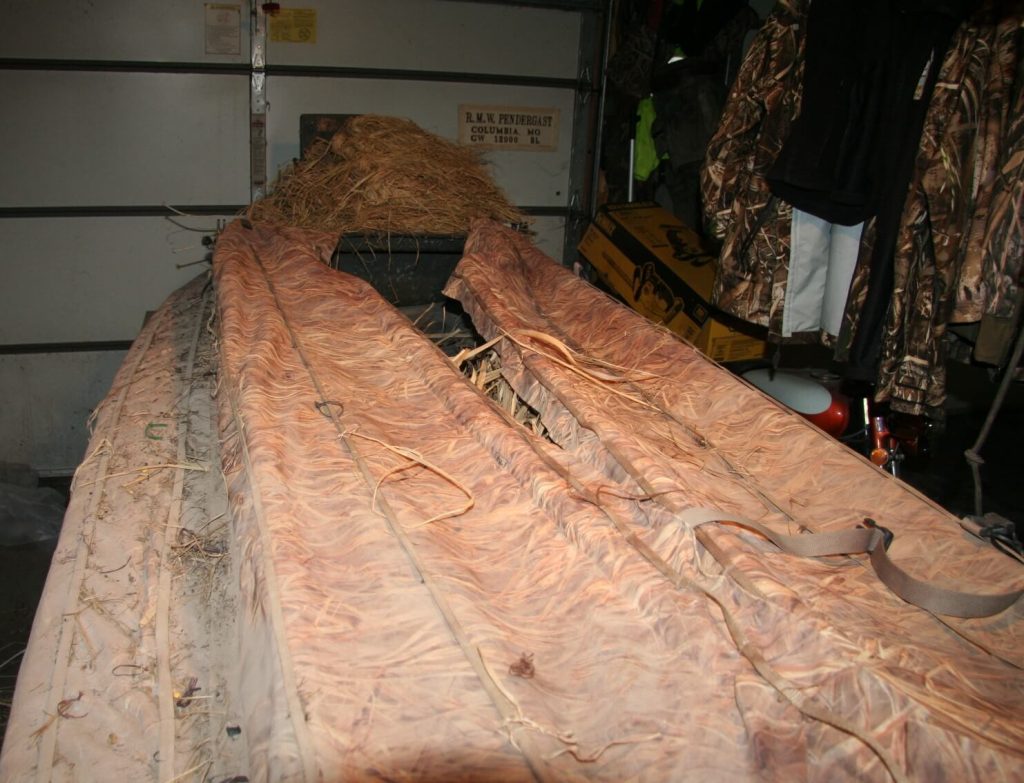
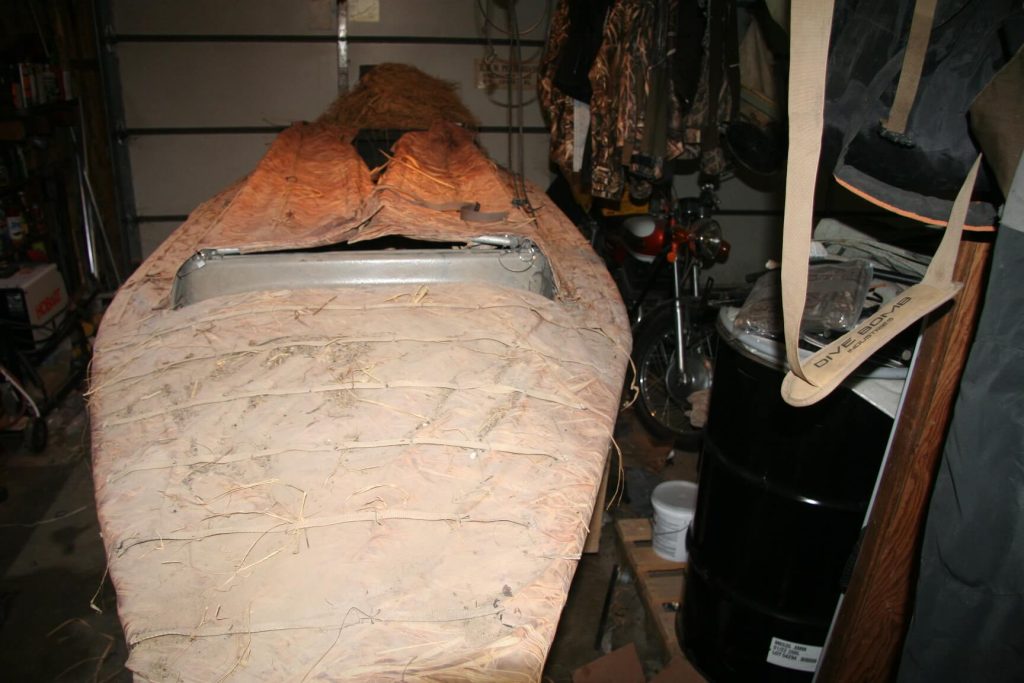
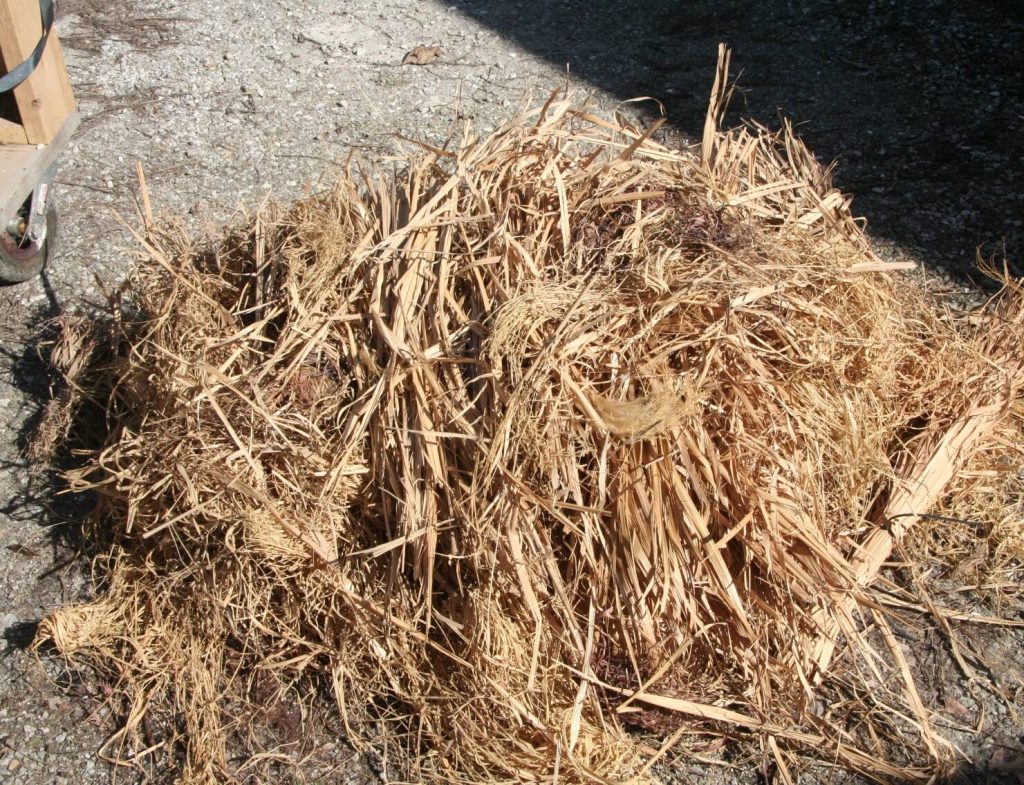
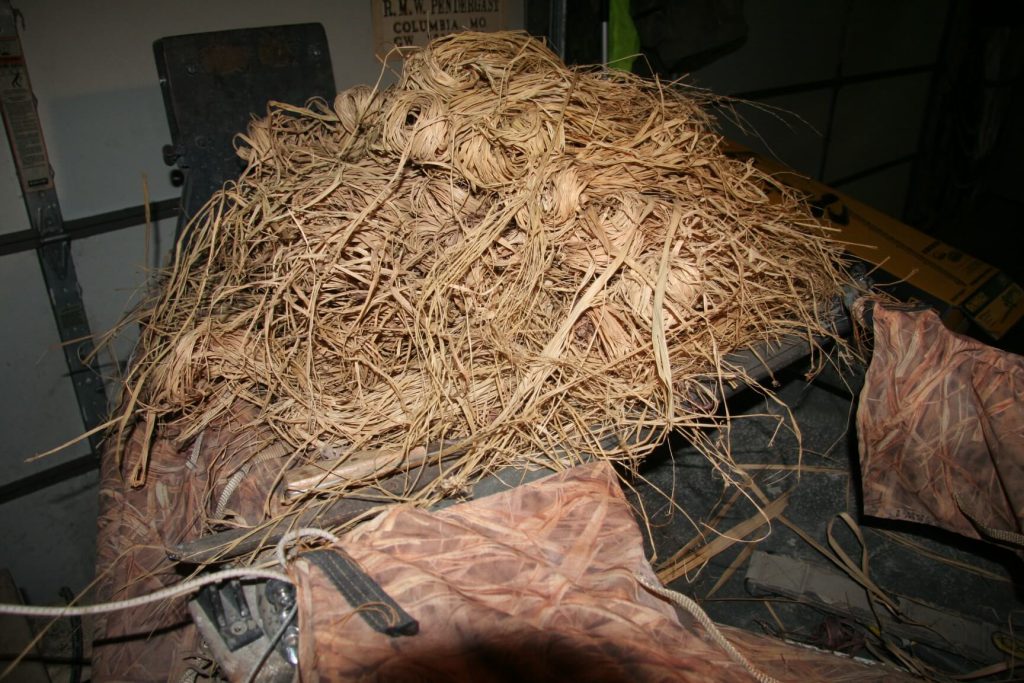
Once I had the old grass removed I started weaving the new Blind Grass into the loops. I was provided plenty so I put two pieces in each loop using a cow/girth/larks head knot, which is simply folding the blade in two then passing the folded end through the loop and then pulling the loose ends through the loop. Once pulled tight this will never come off. Each piece is 48” so you have about 24” doubled. As I added pieces I wove them into the loops so I could better see where I would add the raffia grass and additional texture. I alternated the grass on each row and used the better, stringier grass I had taken off previously.
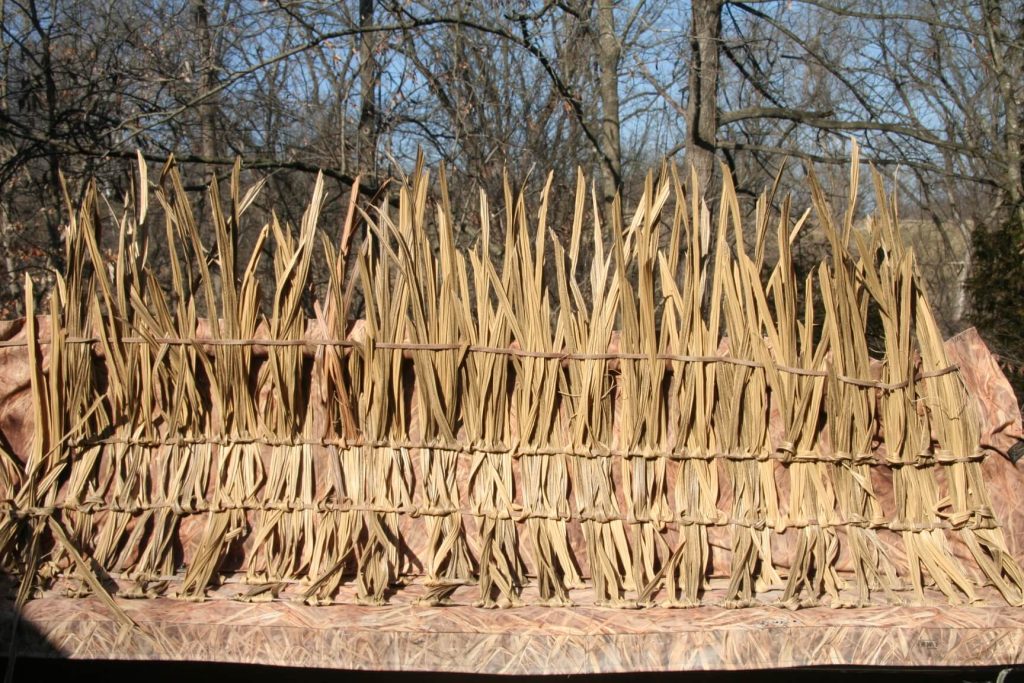
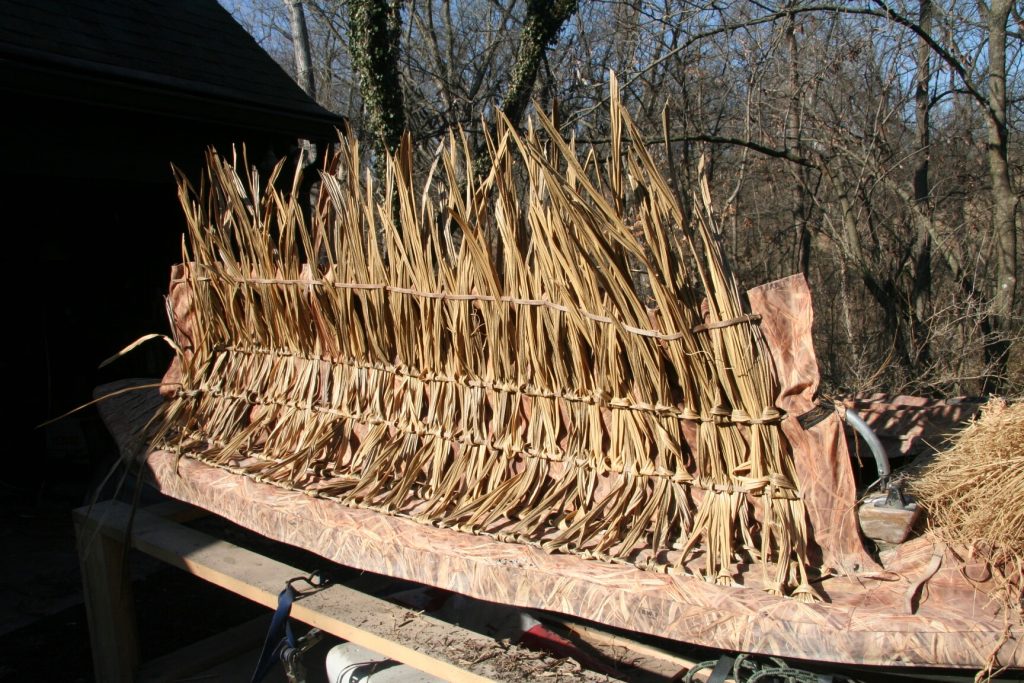
The straps are ½” and are secured to the Cordura cover. I was able to both tie the blades to the straps and weave the blades under the straps.
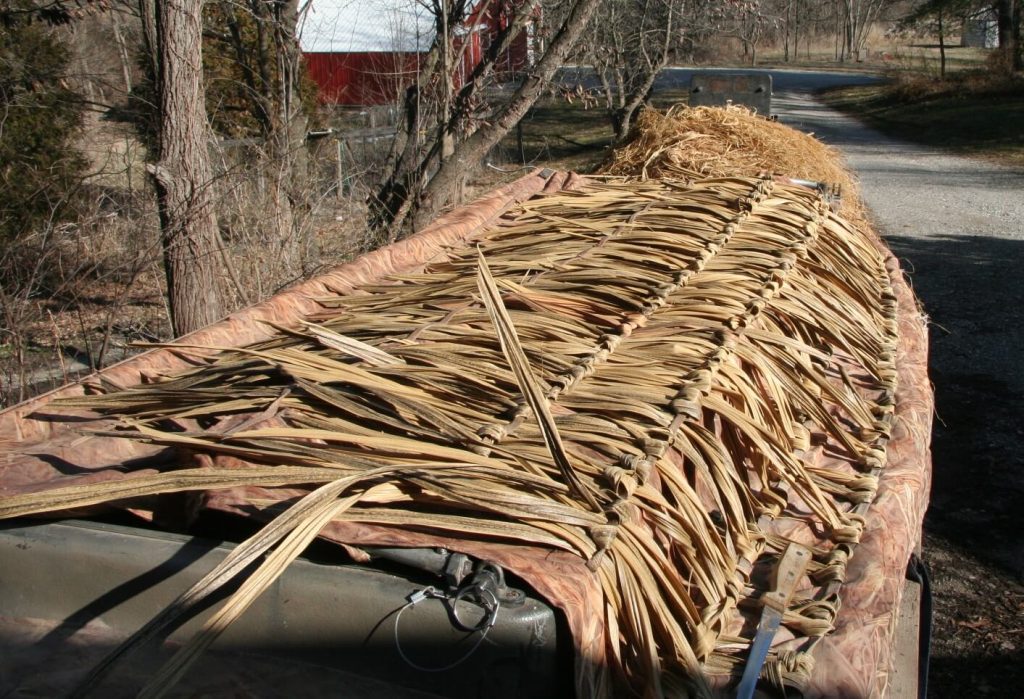
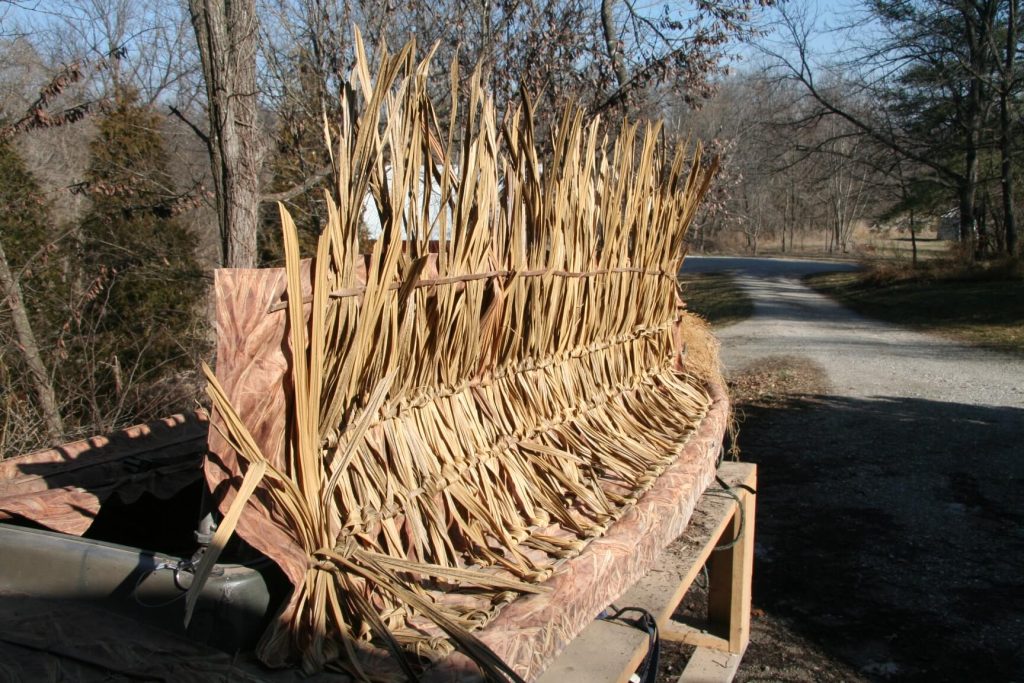
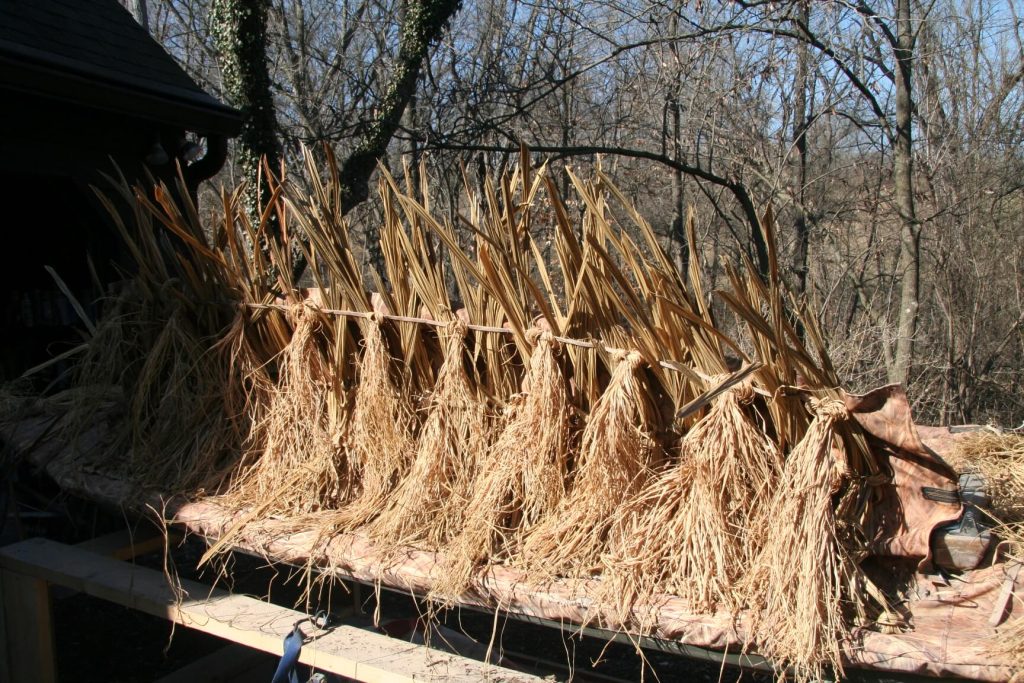
Once all was in place I reached in and pulled out the blades to allow them to stand out and up. The end result is impressive and will be a perfect blend of the flooded corn. The front of the boat I did in the same way. On both sides, I lowered the doors and trimmed all the raffia from near the waterline to make sure that did not get soaked. The new Blind Grass is synthetic and will not absorb water. I did not cover the back deck, as that is where I store empty decoy bags.
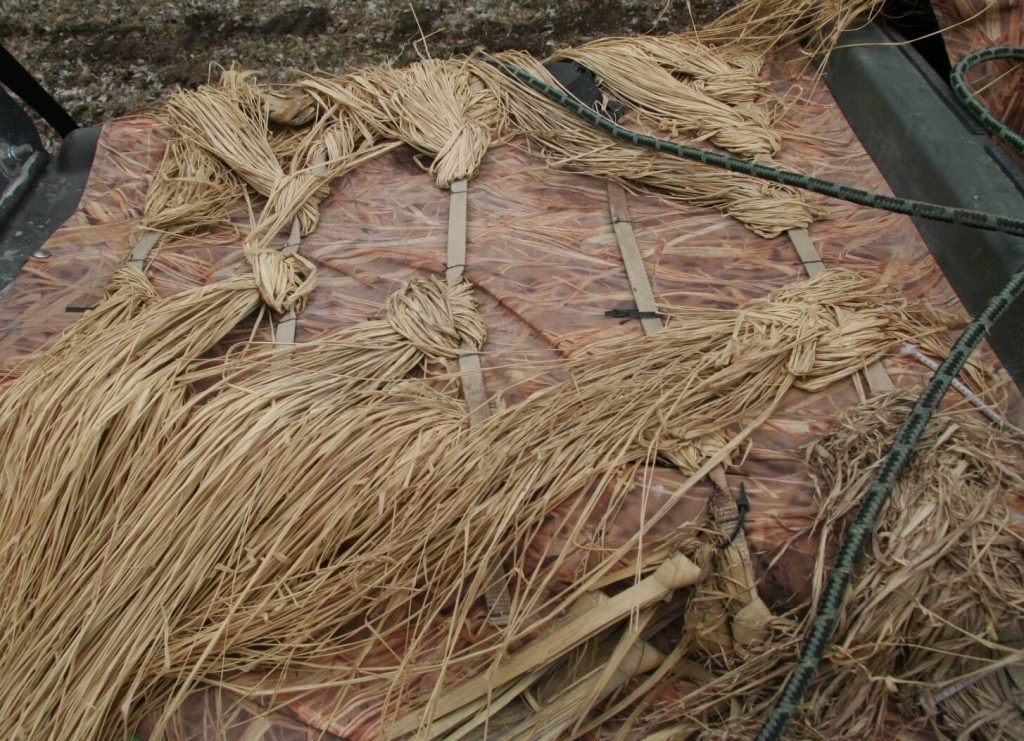
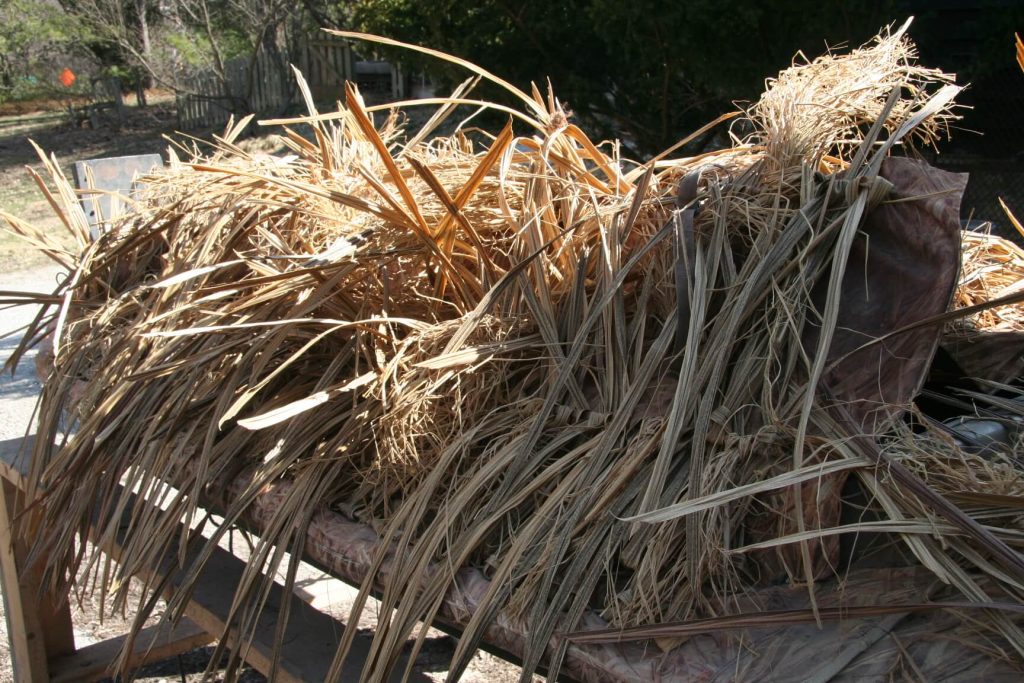
As an off-season project, this was a few days of work. I was impressed with how much I removed that did not go back on the boat. If you can imagine a pile of raffia grass big enough to fill a huge garbage bag and then consider how much it weighs when wet. The new and improved version is certainly going to be the envy of my friends. I can now show up after a long haul, put my boat in, and hunt with little time spent re-camouflaging and rebuilding my cover. I also know this will last season after season.
In The End
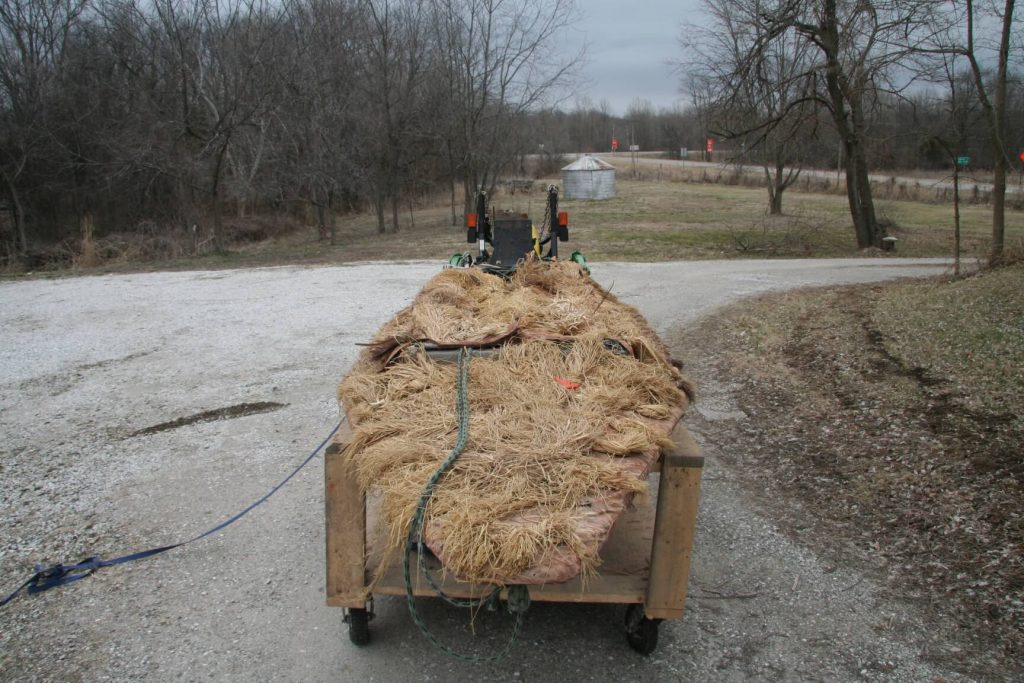
SEE MORE: The Blind Bag – More Than You Need & Never Enough
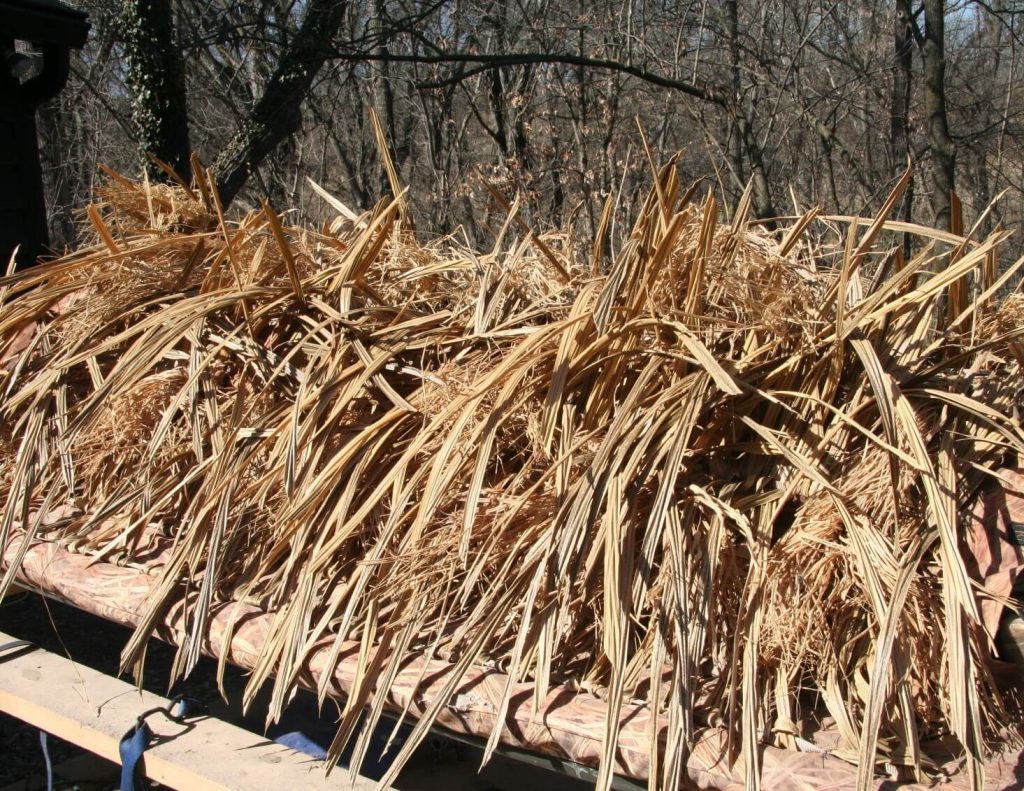
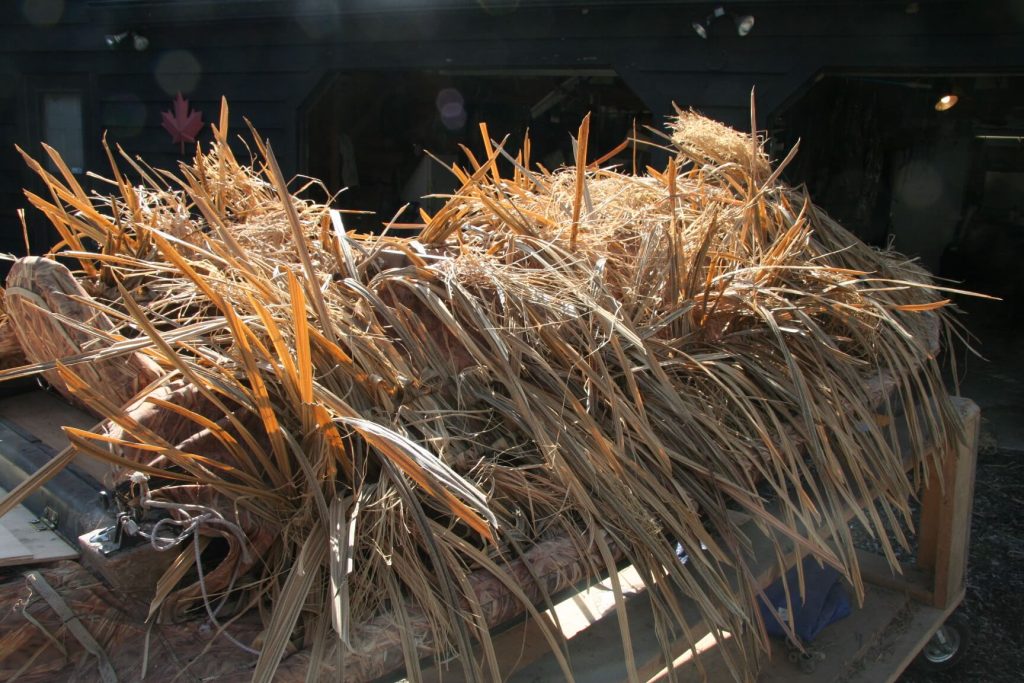
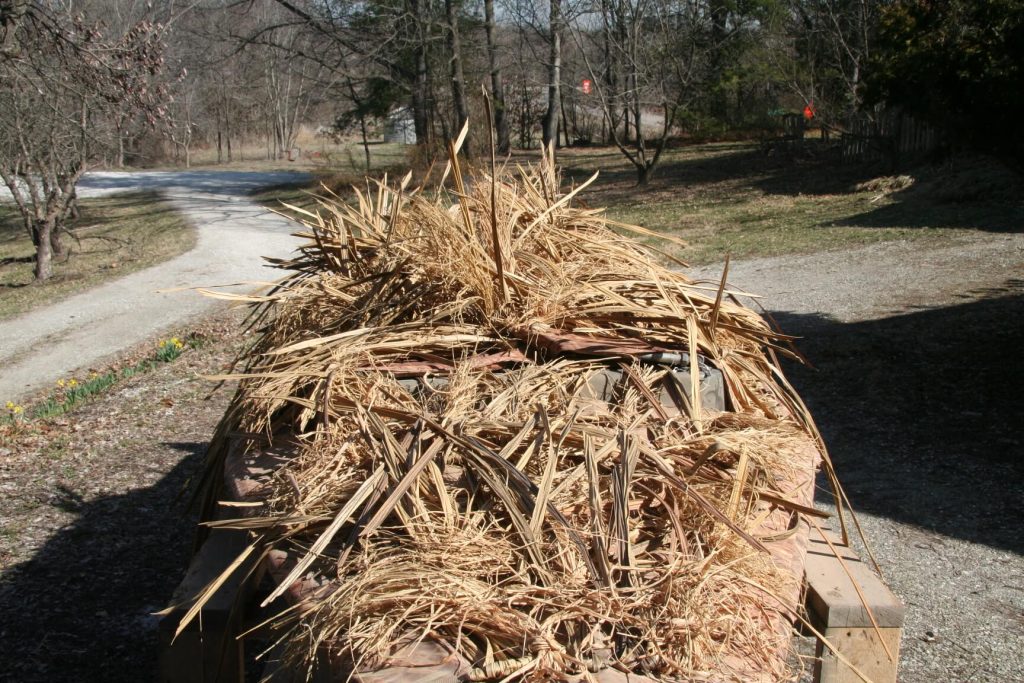
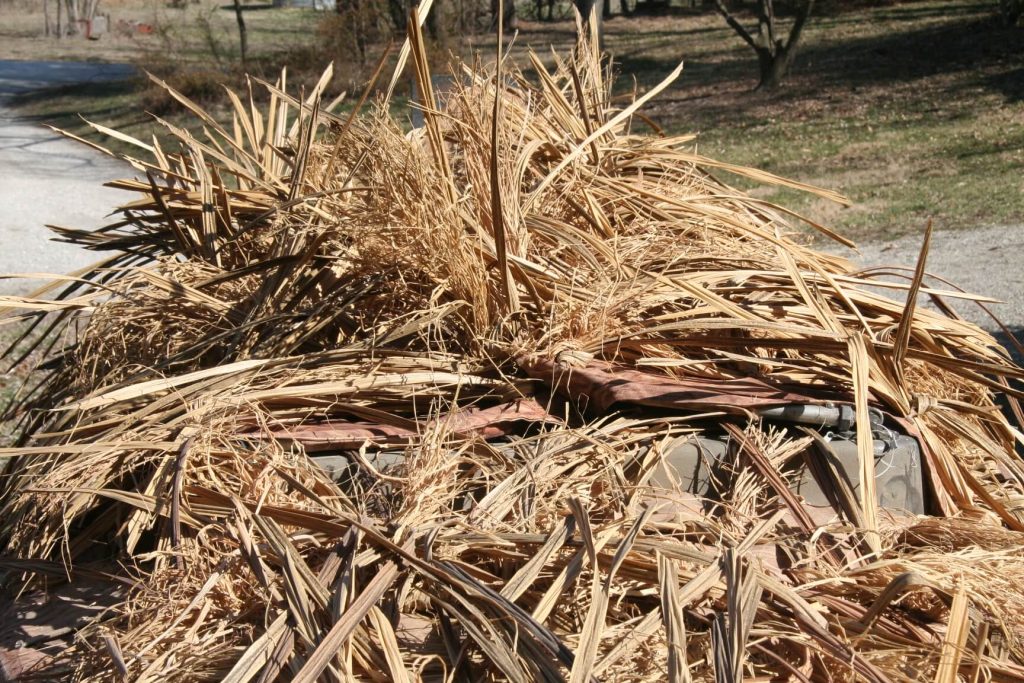
Costs
Blind Grass 8 Pound Bundle MSRP $69.95
20 pound Bundle MSRP $174.95
2-pack 48” x 24” panel MSRP $54.95
